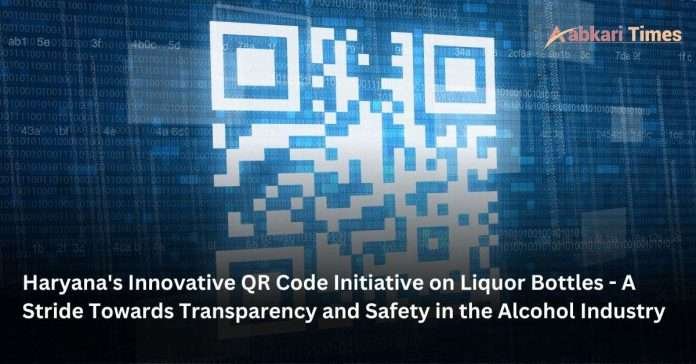To combat the illicit trade of liquor and ensure consumer safety, the Haryana government has introduced a Quick Response (QR) code system on liquor bottles produced in the state. This initiative, incorporated into the Haryana Excise Policy 2023-24, aims to curb smuggling and the sale of adulterated liquor.
Officials reported that the distribution of liquor bottles with QR codes by licensed contractors commenced several weeks after the official launch on December 12. This pilot project, initiated in the third quarter of the financial year 2023-24, is part of the track and trace system developed by the National Informatics Centre (NIC). The decision to implement the QR-based track and trace system was made following a review meeting chaired by Deputy Chief Minister Dushyant Chautala, who oversees the excise and revenue department.
Chautala emphasized that the policy includes a provision for the QR-based track and trace system, which aims to regulate and monitor the movement of liquor in real-time. The system is being executed in two stages: first, the supply from distilleries to L-1 or L-13, and second, from wholesale stores to retail liquor vends authorized under them.
The QR code, containing details of the manufacturer and supplier, will be a crucial tool for government information and consumer awareness. YK Gupta, a wine contractor based in Karnal, confirmed the initial implementation of the first stage and explained that licensees like him will soon add details of the liquor vends they supply to, in accordance with orders.
RK Nain, Karnal District Excise and Taxation Commissioner (DETC), excise, highlighted that the QR code implementation began after December 12 in all distilleries, with most products already in the market. The system is expected to be fully operational shortly after the sale of the existing stock.
Contractors and officials alike expressed optimism about the benefits of the QR code system. It is anticipated to prevent duplicate manufacturing of liquor, enhance revenue collection, and facilitate tracking of the supply chain during events such as theft. Additionally, the QR codes will aid in tracing the source of illegal liquor supply, ultimately fostering regulatory compliance.
Home Minister Anil Vij, in response to a motion during the winter session of the Haryana Assembly, emphasized the importance of this provision. He mentioned that the QR code initiative was part of a broader strategy, which also includes the installation of state-of-the-art CCTV camera systems in all distilleries and bottling plants. These systems are connected to an integrated control room at the head office to further ensure the security and integrity of the liquor supply chain.













